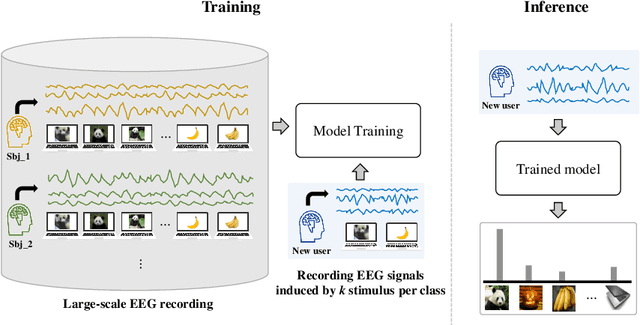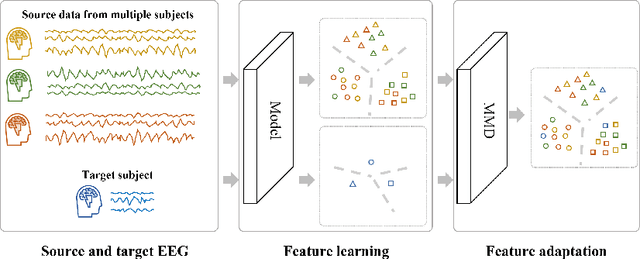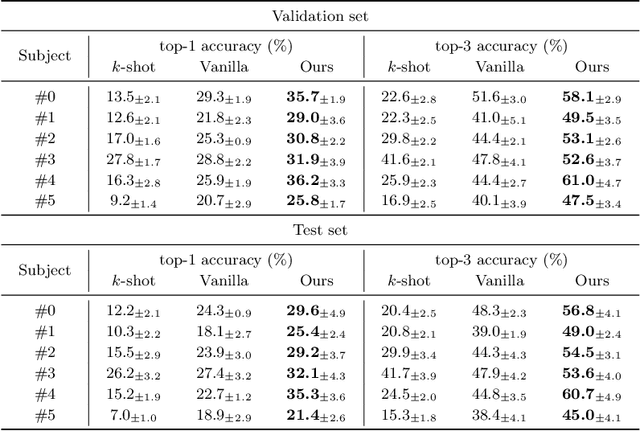Subject Adaptive EEG-based Visual Recognition
Paper and Code
Oct 26, 2021



This paper focuses on EEG-based visual recognition, aiming to predict the visual object class observed by a subject based on his/her EEG signals. One of the main challenges is the large variation between signals from different subjects. It limits recognition systems to work only for the subjects involved in model training, which is undesirable for real-world scenarios where new subjects are frequently added. This limitation can be alleviated by collecting a large amount of data for each new user, yet it is costly and sometimes infeasible. To make the task more practical, we introduce a novel problem setting, namely subject adaptive EEG-based visual recognition. In this setting, a bunch of pre-recorded data of existing users (source) is available, while only a little training data from a new user (target) are provided. At inference time, the model is evaluated solely on the signals from the target user. This setting is challenging, especially because training samples from source subjects may not be helpful when evaluating the model on the data from the target subject. To tackle the new problem, we design a simple yet effective baseline that minimizes the discrepancy between feature distributions from different subjects, which allows the model to extract subject-independent features. Consequently, our model can learn the common knowledge shared among subjects, thereby significantly improving the recognition performance for the target subject. In the experiments, we demonstrate the effectiveness of our method under various settings. Our code is available at https://github.com/DeepBCI/Deep-BCI/tree/master/1_Intelligent_BCI/Subject_Adaptive_EEG_based_Visual_Recognition.
 Add to Chrome
Add to Chrome Add to Firefox
Add to Firefox Add to Edge
Add to Edge